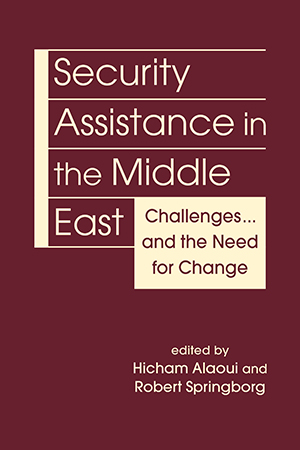Why, given the enormous resources spent by the US and Europe on security assistance to Arab countries, has it led to so little success? Can anything be done to change the disheartening status quo? Addressing these thorny questions, the authors of this state-of-the-art assessment evaluate the costs and benefits to the main providers and recipients of security assistance in the MENA region and explore alternative strategies to improve outcomes for both.
Hicham Alaoui is research associate at the Weatherhead Center for International Affairs, Harvard University. Robert Springborg is nonresident research fellow of the Italian Institute of International Affairs and adjunct professor in the School of International Studies at Simon Fraser University.
"The holistic approach of this book provides precious insights not only for students and scholars but also for policymakers."—Elena Potitò, International Spectator
"Multifaceted, rigorously researched, and thoughtful.... The volume offers tremendous value to students and practitioners of security assistance in the Middle East. Solutions will come only with a piercing, honest appraisal of the problem, to which this book makes a tremendous contribution." —Thomas W. Ross Jr., Parameters
"One of the first studies of the concepts and practices of modern security assistance that is both devoid of ideology and accessible to scholars, policy analysts, and practitioners alike. A perfect guide to the 'dark arts.'" —David B. Des Roches, National Defense University
"Highly original, bringing new research to bear on a policy question of major importance and filling a gap in the academic literature. This is a must-read for anyone working on Middle East security policy." —Nicholas Lotito, Yale University






